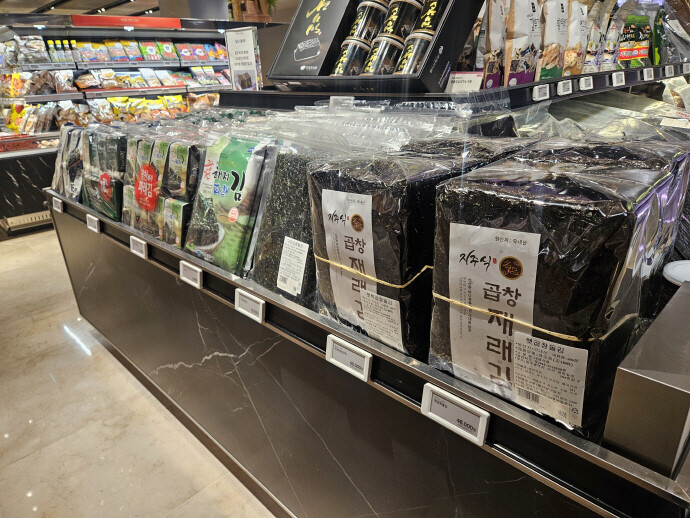
Seoul – South Korea is grappling with a significant overproduction of mulgim, the raw material for seaweed (gim), leading to thousands of tons being discarded. Last month alone, nearly 6,000 tons of mulgim were thrown away due to a supply glut, according to the National Federation of Fisheries Cooperatives.
The overproduction is attributed to several factors, including favorable weather conditions for seaweed growth, new aquaculture farm permits issued by the Ministry of Oceans and Fisheries, and illegal mulgim farming practices. This has resulted in a surplus of mulgim that far exceeds the demand from seaweed processing companies.
"As the supply of mulgim exceeds the demand of seaweed processing companies, it is being discarded without being sold at auction markets," the Ministry of Oceans and Fisheries explained.
The Korea Institute of Ocean Science and Technology reported a 17.6% increase in mulgim production in Jeonnam province last month compared to the same period last year, with even higher increases in Busan (76.9%) and Chungnam (64.9%).
The discarding of mulgim is expected to continue in the coming months, as the Korea Institute of Ocean Science and Technology forecasts further production increases in February (26.8%) and March (13.9%) compared to the previous year.
The excess supply has driven down the price of mulgim at production sites. In January, the average price of mulgim sold was 762 won per kg, a significant drop of 54.0% from the same period last year (1,655 won) and 36.0% lower than in 2023 (1,191 won). In contrast, the price of dried seaweed (gim) remains high, at 1.5 times the average level.
To address the issue, the Ministry of Oceans and Fisheries is considering a pilot program of contract farming for some mulgim aquaculture farmers in Jeonnam province. This initiative aims to reduce mulgim waste and ensure a stable supply and demand for seaweed. The ministry is currently discussing the plan with the local fisheries cooperative.
[Copyright (c) Global Economic Times. All Rights Reserved.]



























